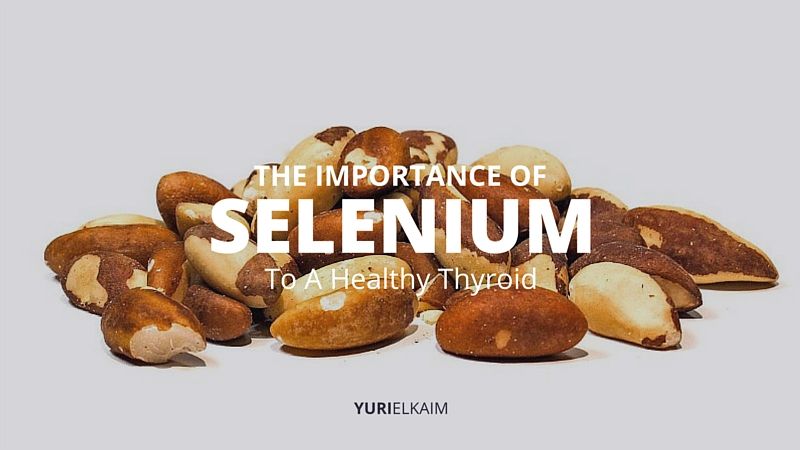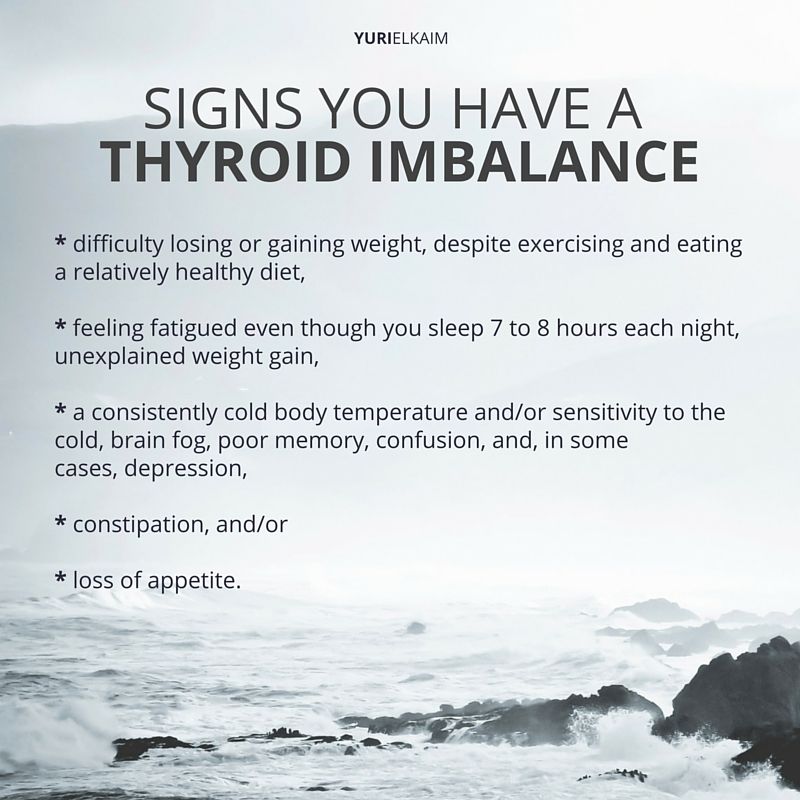In this article
Your thyroid is an ultra-important gland when it comes to regulating your metabolism and producing energy – among several other functions.
To give you an idea of how important your thyroid is, you wouldn’t have been able to grow from an infant to a child without it (1).
You also wouldn’t be able to properly absorb and use the nutrition from the foods you eat, such as carbs, healthy fats and proteins. Without receiving these nutrients, your cellular, psychological, and physical health suffer.
Imagine not having any energy to get out of bed, or being left with a gaping wound after falling because your body cannot properly use protein for tissue repair.
Both situations would be disastrous, to say the least.
Since your thyroid plays such an important role in your health, it’s important to know how it works, and how to keep it functioning optimally through proper nutrition.
The most common nutrients that are discussed for thyroid health are iodine and the amino acid, L-tyrosine.
Both of these nutrients are synthesized in the body to produce the thyroid hormones, T3 and T4, which regulate your metabolism. T4 is converted into T3 in the body, which is the more active form of the thyroid hormone.
In addition to iodine and tyrosine, the benefit of having enough selenium in your diet for a healthy thyroid is less frequently discussed, and may be just as (if not more) important to thyroid function.
Symptoms of a Thyroid Imbalance
Before we discuss proper nutrition for the thyroid, let’s first take a look at what having an overactive or underactive thyroid would look like.
To have symptoms of an imbalanced thyroid, you do not have to be diagnosed with hyperthyroidism, hypothyroidism, or Hashimoto’s disease.
However, if you have many of these symptoms and they are ignored, it’s possible they could eventually lead to a thyroid condition.
What Causes an Imbalanced Thyroid?
Several factors can lead to a poorly functioning thyroid, but since the thyroid is most dependent on proper nutrition, diet is the first place to turn to when it comes to the thyroid gland.
Here are the most common dietary causes of an imbalanced thyroid, which can contribute to a deficiency in the thyroid supportive nutrients, iodine, L-tyrosine and selenium.
A diet high in refined sugar.
Refined sugar is what nutritionists consider an “anti-nutrient” because it robs your body of critical vitamins and minerals (such as selenium and iodine) upon being metabolized. These vitamins and minerals are essential for the body to be able to produce thyroid hormones.
Refined sugar also wreaks havoc on your gut.
The relationship between gut health, hormone balanced the thyroid could form another blog post altogether, but in short: poor gut health impairs your ability to properly absorb and utilize nutrition from the foods you eat to support a healthy thyroid.
For example: if you’re eating a food that contains iodine and selenium, but your digestive system can’t properly absorb those nutrients, you won’t receive the thyroid-supportive benefits of eating that food.
This is why digestive health is also an important place to turn to when it comes to addressing thyroid symptoms.
A diet high in gluten.
Gluten is a protein found in wheat that is extremely hard for the body to digest, which is why so many of us are sensitive to it.
Like sugar, it compromises gut health because it creates a ton of inflammation in the body, especially in the digestive tract.
Gluten sensitivities may also be linked to leaky gut, a condition in the digestive system that prevents your body from digesting and absorbing critical nutrients to thyroid health, such as selenium and iodine.
[Related: Wheat-Free Diet: A 5-Step Detox Plan to Lose Your Belly]
Vitamin D deficiency.
Low levels of Vitamin D may also be a culprit in having an underfunctioning thyroid gland. This is because D3 is converted into T3 in the body (2).
Vitamin D deficiency is most common in climates that receive fewer hours of sunlight, but also in those with compromised gut health or who avoid Vitamin D-containing animal products such as fish and eggs.
Too much iodine.
While iodine is needed for a healthy thyroid, having too much iodine in one’s diet can cause the opposite of an underactive thyroid, which is an overactive thyroid. Iodine is found abundantly in seaweed, iodised salt, eggs and dairy products.
The Importance of Selenium for Thyroid Function
Selenium is a trace mineral that’s only required in small amounts by the body, but is needed to aid in enzyme function, maintain a healthy gut and immune system, and prevent damage to your cells (3).
In addition to these important functions, studies on selenium benefits for thyroid have also proven it to be a crucial nutrient alongside iodine to convert T4 to T3 (4).
Selenium has also been shown to protect the thyroid gland from excess iodine exposure (5).
Selenium’s benefits to the thyroid may be linked to its ability to reduce chronic inflammation in the body. When the body experiences severe inflammation, it becomes much more susceptible to permanent tissue damage, which includes damage to the thyroid tissue.
But what’s even more interesting about selenium is that it’s been shown to reduce the levels of an enzyme called thyroid peroxidase in the blood.
Thyroid peroxidase is found in the blood when the immune system is attacking the thyroid gland, which would indicate an autoimmune thyroid disease, such as Hashimoto’s disease (6). This finding alone suggests how important selenium is to maintaining proper thyroid health.
A study also showed that providing extra selenium to animals with selenium deficiency improved the conversions of T4 to T3 in the body (7).
That being said, selenium is just as important to thyroid health as iodine, since the two minerals work together to convert T4 to T3. Selenium’s anti-inflammatory benefits may also help promote the body’s overall ability to absorb iodine by reducing inflammation in the digestive tract as well as other places in the body (8).
Best Foods for an Under-Functioning Thyroid
If you suspect your thyroid is low, it may be beneficial to you to start incorporating more thyroid-supportive foods that are rich in selenium such as:
- Brazil nuts
- Crimini and shiitake mushrooms
- Wild fish (tuna and cod)
- Turkey
- Chicken
Try these recipes:
One Pot Pasta Recipe with Brazil Nuts
Other thyroid-supporting foods that are good sources of iodine and Vitamin D3 include:
- Seaweed (kelp, wakame, nori)
- Organic eggs with the yolks
- Seafood (shrimp, wild salmon)
- Fish oil
In addition to including foods that are rich in nutrition that supports thyroid function, it’s also important to consider your gut health, as already mentioned. Foods that help promote a healthy gut and support the digestive and nutrient absorption process include:
- Fermented foods: coconut milk kefir, unsweetened plain organic yogurt, apple cider vinegar, kombucha, kimchi, sauerkraut, and, in some cases, high quality probiotic supplements
- Plant foods rich in digestive enzymes: pineapple and papaya
- High quality digestive enzyme supplements
Try these recipes:
- Kefir Smoothie Aka the Gut Healer
- Apple Cider Vinegar Detox Soda Drink
- Kombucha Chia Seeds Smoothie
- The Coco-Berry Probiotic Protein Shake That Will Blow Your Mind
Coco-Berry Probiotic Protein Shake
As you can see, the thyroid depends on several nutrients to properly function. By including a variety of the vitamin and mineral rich foods found in nature, you’ll improve the health of your thyroid, and promote healthy functioning hormones overall.




